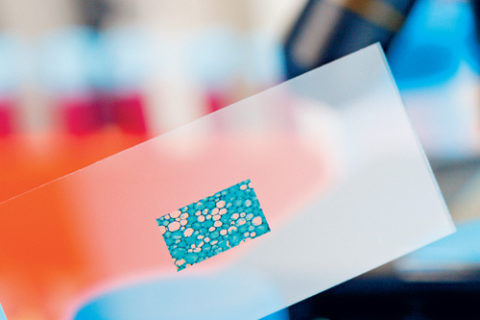Alina Serbanica
In these last years, both macro-economic and micro-economic environments in Romania have been exposed to some key phrases; economic crisis, cut-off costs and budgets, better ROI.
Have these phrases has any impact on the market research industry in Romania? The answer is yes. The market research industry here, was not left outside of the economic and financial trends seen in a lot of other industries across Europe.
Prior to economic crisis, automotive, banking & financial and pharmaceutical companies used to be heavy research service buyers, investing a lot in understanding consumer behaviour in an emerging market, where new consumption patterns have evolved a lot in the last decade. In the last 4-5 years, the most affected industries were automotive and banking, significantly decreasing their budgets and spending on research. For awhile, the pharma industry seemed to have a similar trend – decreasing the money spent on buying research – though not as dramatic a drop as the other two. recently it has been noticed that pharma is starting to recover, with good signs that they will be reinvesting in the Romanian research industry.
Traditionally, FMCG companies were spending large budgets on market research in the region. However, in the last few years, as a result of the macro-economic crisis, they cut budgets and were looking for a better ROI out of the research they were commissioning. They have been more interested on the consultancy services the agencies can provide along with the research project results to make the decision making process more efficient and valuable, helping them implement strategies for sustainability in the market.
One expanding industry in Romania is the retail. Thanks to new shopping malls and new retail networks consolidating their position and market shares by opening new locations, this industry evolution has generated an increased demand for shopper research studies beyond the traditional retail audit and consumer panel. The new shopper demand is focused on better understanding the subjective perceptions of the consumers and on investigating the “mental maps” of the consumers in the relationship with modern retail.
The procurement departments existing in most of the multinational and larger companies (who are the main research clients in Romania) have started to play a very important role from the phase of contacting potential research providers and commissioning research. This proves once again how important is for the companies to better control their costs and budgets, and endeavour to commission services at the lowest price they can get. For research agencies this trend is not a positive one. It transforms our services into a regular commodity, bought by clients judging only on a lower price. This evaluation process becomes irrelevant. The process no longer considers the comparison between the services provided by the agency, and doesn’t analyse and evaluate the points of differentiation of specialised research products and, in a lot of cases, the methodologies and techniques used.
Romanian market research companies are committed to developing new research products, emphasising the points of differentiation to ensure their offering is more valuable to their clients and potential buyers. The range of research products made available by different agencies on the Romanian market are becoming more sophisticated. Standardised research modelling solutions and research products, with added room for flexibility and customisation, take on board very specific and sometimes niche business needs clients will always have.
In the last years, researchers have been exposed more and more to other key words such as: consumer insights, online research and mobile devices, ethnography, and neuroscience. Are there clear changes in the way we are doing research in Romania thanks to these aspects? Yes, definitely.
The demand for segmentation studies has increased, clients are interested in the consumer segmentation with an advanced option of measuring and modelling the financial impact on the business for the different brand positioning options.
Also, the demand for the conjoint studies has also increased in Romania. Research companies are now being commissioned to execute this type of research because of the client interest in maximising the ROI on their existing products and services. The economic crisis has made many more reluctant to enlarge their portfolios, so they are looking at effectively and efficiently increasing the ROI on the existing ones.
In Romania qualitative methods were always well appreciated, with clients especially keen on focus groups. In the last couple years we noticed that the demand in ethnography research studies has also increased, along with the openness of the clients to approach other qualitative methods, without becoming hackneyed by the benefits of the traditional focus groups.
Online research is also starting to increase in Romania, with more and more clients choosing to use online methodologies for data collection. This trend is not a surprising one, taking into consideration that most of the market research companies have switched almost completely from the PAPI to the CAPI data collection technique. In the Romanian market the noticed trend is that of migrating from the “long and complex” questionnaires (“mastodon” ones) to better optimised interviews and research methodologies, allowing more fluid and agile data collection.
Mobile research is still in the very beginning in Romania and this is because the smartphones and mobile device market is still in its forming stage here, and is strongly skewed towards the major urban areas. In the industry we are very confident that this will significantly evolve in the coming years as the mobile market has increased dramatically recently. Consequently, the Romanian market has potential for increasing mobile research in spectacular ways in the coming years.
Thanks to mobile devices growing penetration, Romanian market research will benefit from an increased demand for digital studies in the following couple of years; this will become reality by importing specific tools from more advanced and developed markets and, gradually, through partnerships with digital specialised companies.
The capability of Romanian research agencies to offer tailored products using neuroscience is in a very incipient age, but, this research methodology will evolve in the coming years, particularly because of the interests of clients to get faster access to consumer insights, perceptions and reactions to different marketing stimuli.
The market research industry continues to evolve in Romania in the same way the industry evolves in other regions. The sophistication of the new tools, techniques and methodologies that can be applied, mean the client expectations will continue to increase in terms of the research that is delivered. Market research clients have a strong desire to receive added value in the traditional research outcomes. They have real need for consultancy, looking for the market research companies to act as a strategic partner with. It is no longer enough to provide the old-fashioned data output of the traditional agency.
The benefit that market research companies can already notice in Romania is an increased willingness of the clients to approach and organise integration workshops, where the researchers are working closely with the decision makers to activate the research findings and translate them into smart and effective strategies. Helping the client company to increase business and gain market shares.
This new type of relationships between the market research companies and its clients will determine the changes in the way Romanian research agencies are structured in the future, migrating from traditional operations to more sophisticated consultancy functions, and should also lead to an increase in research expertise in the country and adoption of cutting edge research methodologies from more advanced research markets.
Alina Serbanica is ESOMAR representative for Romania and Senior Vice President at Ipsos, Global Access and Engagement Services


